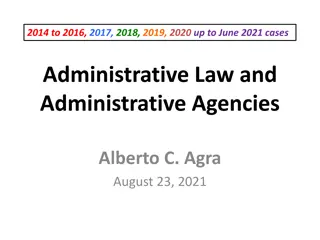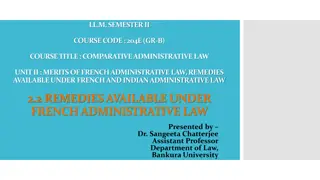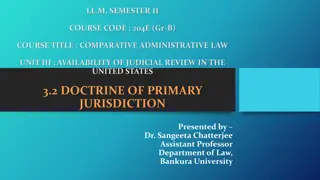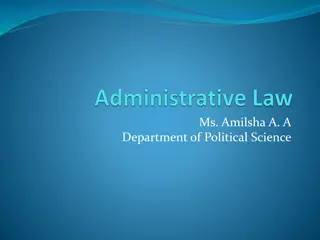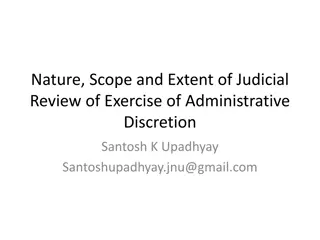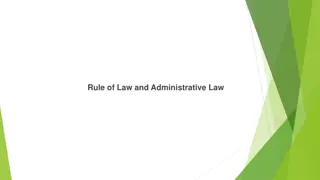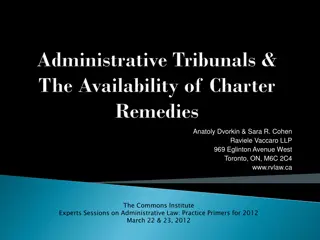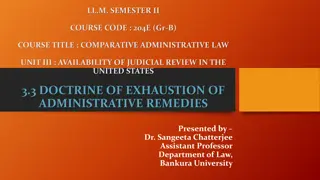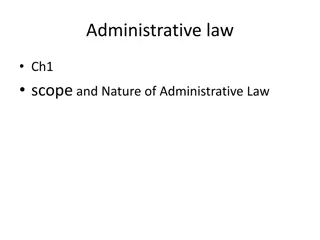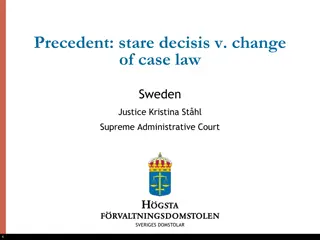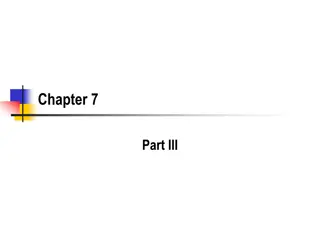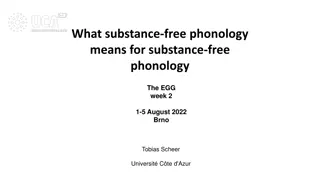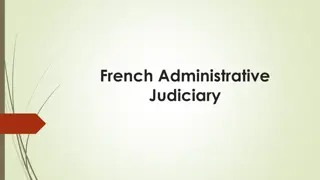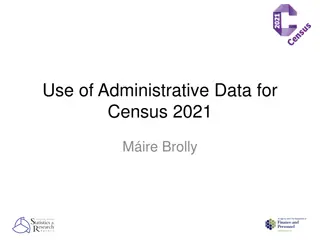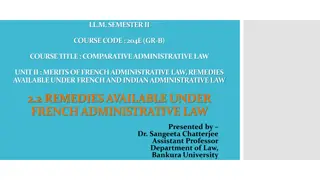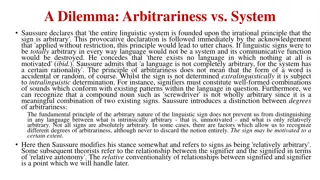Understanding Arbitrary and Capricious Review in Administrative Law
Arbitrary and Capricious Review refers to a highly deferential standard applied to agency decisions, requiring agencies to demonstrate compliance with statutory requirements. The landmark case of Citizens to Preserve Overton Park v. Volpe set the precedent for a thorough judicial review based on the record. Modern judicial review demands reasoned decision-making and transparency in agency actions. Hard Look Review emphasizes the importance of thorough scrutiny and justification in administrative decision-making.
Download Presentation

Please find below an Image/Link to download the presentation.
The content on the website is provided AS IS for your information and personal use only. It may not be sold, licensed, or shared on other websites without obtaining consent from the author. Download presentation by click this link. If you encounter any issues during the download, it is possible that the publisher has removed the file from their server.
E N D
Presentation Transcript
Chapter 7 Arbitrary & Capricious Review 1
What does Arbitrary and Capricious Review Mean? Original definition Highly deferential to the agency Same effect as the rational relationship test in constitutional law. This is consistent with the general policy of APA, which established deferential review of agency decisions on fact and policy. 2
Citizens to Preserve Overton Park, Inc. v. Volpe, 401 U.S. 402 (1971) This was an informal adjudication a decision about the routing of a road by the Secretary, but one with significant impact. Consistent with the later Vermont Yankee case, the Court is not adding to the statutory requirements on the Secretary s decision. Instead, the court is requiring the Secretary to show on the record that he complied with the statutory requirements. To make sure that the decision was property made, the court held that judges could do: a substantial inquiry, a thorough, probing, in-depth review, and [a] searching and careful [inquiry into the facts]. 3
The Impact of Overton Park Overton Park creates the modern system of judicial review based on a detailed look at the record. Agencies retain their discretion but must document that they considered all required factors. It gives the court the power to remand for an inadequate record even if it is clear that the agency will prevail when it gets the record right. This was an issue with some of the Trump actions they were enjoined by the courts because of an inadequate or incorrect records. 4
When Should the Court Allow the Record to be Supplemented by the Agency? Like a trial transcript on appeal, the record is usually closed, otherwise there would be de novo review of new material. There are some exceptions. Assume that a group is unable to present material to include in the record because the agency failed to hold a required hearing. The court might allow the information into the record and allow the agency to consider it and amend the record before the court. Evidence of bias might be allowed, but this is very rare. 5
Hard Look Review - The General Standard for Modern Review [judicial review should] evince a concern that variables be accounted for, that the representativeness of test conditions be ascertained, that the validity of tests be assured and the statistical significance of results determined. Collectively, these concerns have sometimes been expressed as a need for reasoned decision-making. . . . However expressed, these more substantive concerns have been coupled with a requirement that assumptions be stated, that process be revealed, that the rejection of alternate theories or abandonment of alternate course of action be explained and that the rationale for the ultimate decision be set forth in a manner which permits the . . . courts to exercise their statutory responsibility upon review. National Lime Assn. v. EPA, 627 F.2d 416, 453 (D.C. Cir. 1980) 6
How do We Square Hard Look with Deference? The courts cannot use hard look to change the underlying requirement that they defer to agency decisionmaking on facts and policy. Hard look analysis requires agencies to make sure that the record for the case provides a clear basis for their factfinding and their policy decisions. A court can hide its disagreements about policy and facts behind hard look review. Rules or actions the court does not like but would have to defer to can be remanded for more detail, sometimes fatally if the agency runs out of time to respond before an opposing party takes over the White House. 7
Hard Look and Political Change Elections matter. New administrations change regulatory direction by changing rules. The record requirement of Overton Parkand the hard look of National Lime combine to set a rigorous standard for justifying a new rule. The agency will have to build a record with a detailed factual analysis, with those facts backed up by valid studies. In our next sections, we will look at whether this same standard applies to withdrawing or changing a rule. 8


